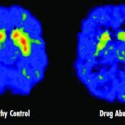Anti-addiction drugs linked to depression
Pills that aimed to help people quit smoking, lose weight and kick other tough addictions, have been found to block the body’s pleasure centres, possibly raising the risk of depression and suicide.
Margaret Bastian was among patients who reported problems with Chantix, a highly touted quit-smoking pill from Pfizer Inc, which has been linked to dozens of reports of suicides and hundreds of suicidal behaviours. “I started to get severely depressed,” said Bastian, whose doctor took her off Chantix after she swallowed too many sleeping pills and other medicines one night. The makers of the new drugs insist they are safe, although perhaps not for everyone, such as people with a history of depression. But having to restrict the drugs’ use would be a big setback because it would deprive the very people who need help the most, since addictions and depression often go hand-in-hand, doctors say.
In jeopardy: Another fear is that the whole approach might be in trouble. Researchers say blocking pleasure, especially the way obesity drugs do, might take the fun out of many things, not just the harmful substances these drugs target.
It might be possible to improve the drugs so they act more precisely. Chantix targets a different pathway — nicotine pleasure switches — and in a different way from the obesity drugs. That is one reason many doctors are optimistic that any risks about Chantix will prove manageable.e. But doctors are no longer talking about “super pills” for a host of addictions.
“It certainly diminishes my enthusiasm to see these side effects,” said Mark Egli, co-leader of medicine development at the National Institute on Alcohol Abuse and Alcoholism.
The side effects include depression risks that have become clearer with further study. A new study last month showed that 43 percent of people taking rimonabant, a drug that is supposed to help people lose weight and quit smoking, developed psychiatric issues versus 28 percent of those on dummy pills. One rimonabant patient committed suicide and one in the placebo group tried to. Unlike previous studies, this one did not exclude people who had depression in the past. “I felt it was important to do an ‘all-comers’ study” to see how real-world patients might fare, said Cleveland Clinic’s Dr Steven Nissen, who led the work.
Meanwhile, Merck had bad news from a study of its obesity drug, taranabant, which showed an increased risk of depression and other side effects among people taking medium and high doses.
With Chantix, the situation is murkier. It binds to the same spots in the brain that nicotine does when people smoke, causing the release of a “feel-good” chemical, dopamine. Taking it is supposed to keep any inhaled nicotine from giving the same buzz. In February, the FDA said a link between Chantix and psychiatric problems appears “increasingly likely”. Pfizer added warnings to the drug’s label and said that although a link had not been proved, it could not be ruled out.
However, according to Pfizer Vice President Dr Ponni Subbiah, nicotine withdrawal and even quitting smoking can cause depression. It is hard to know “what is causing what,” she said. “We know that smokers are at higher risk of suicide than non-smokers, and heavy smokers are at higher risk than lighter smokers.” Some doctors agreed.
“Psychologically, just giving up this ‘friend’ that they’ve had many years in their life can be depressing,” said Dr Geoffrey Williams, co-director of the Greater Rochester Area Tobacco Cessation Centre and a paid speaker for Pfizer.
___
source: Pakistan Daily Times

